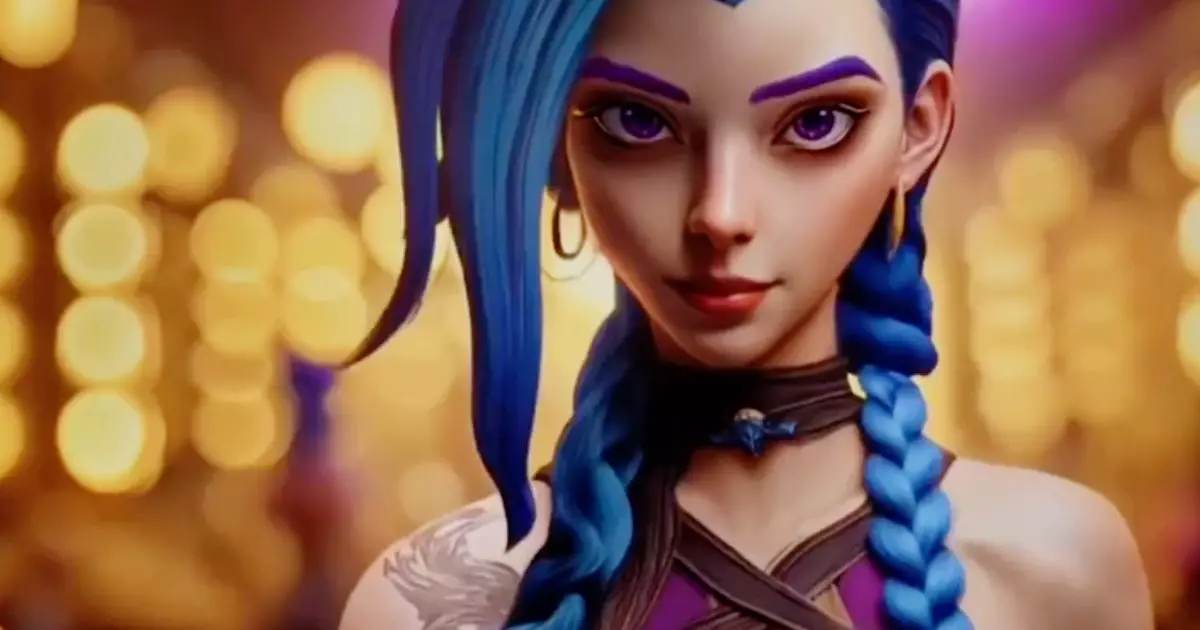The recent controversy surrounding Riot Games’ Wild Rift illustrates a broader cultural debate about authenticity, quality control, and the role of artificial intelligence in entertainment. When Riot’s executive producer, David Xu, addressed fans after the unintended release of a poorly produced anniversary video, his response was notably cautious. Instead of openly admitting that AI technology was used to generate the content, he framed it as a “creator-made” video, suggesting a degree of ambiguity that leaves many questions unanswered. This strategic vagueness exposes a deeper issue: the reluctance of large companies to fully acknowledge the implications of AI in their creative pipelines.
In an age where AI-generated content is increasingly common, admitting its use can be seen as a risk—potentially questioning a company’s commitment to quality or authenticity. Xu’s tone of apology, emphasizing that Riot “can and will do better,” suggests a defensive stance rather than a transparent one. This approach inadvertently fuels skepticism among fans, especially when the evidence of AI mishaps in the video is glaringly obvious. It highlights a troubling tendency in corporate communication: avoidance over honesty, which can erode trust in the long term.
The Visual Failures and Their Symbolic Meaning
The content in question—a janky anniversary celebration video—serves as a tangible symptom of what happens when companies prioritize rapid content production over quality assurance. The video’s numerous glitches, such as awkward facial expressions, misbehaving tails, and shapeshifting weapons, are characteristic of generative AI failures. These technical errors transcend mere incompetence; they symbolize a deeper neglect of craftsmanship and attention to detail that consumers increasingly value.
What makes this episode particularly revealing is how it exposes the gap between consumer expectations and corporate practices. Fans have come to value well-crafted visual content, especially when it involves beloved characters like Jinx, Seraphine, and Yasuo. The shoddy execution not only diminishes the celebratory mood but also undermines the brand’s image of professionalism and innovation. Rather than a bold step forward into AI-enhanced content creation, this incident highlights the perils of rushing unvetted AI outputs onto official channels without rigorous review.
The Broader Implications: AI as a Double-Edged Sword in Gaming
This incident accentuates the complicated relationship between AI and creative industries. On one hand, AI holds promise for democratizing content creation, reducing costs, and accelerating production timelines. On the other hand, as this mishandled anniversary video demonstrates, relying heavily on AI can produce subpar results that damage credibility and fan engagement.
The lack of transparency from Riot about the origin of this content fosters suspicion. It seems to suggest that AI was involved from an external company—possibly “古兜Outliers”—whose Bilibili page references AI-driven aesthetic styles. The secrecy becomes a source of alienation for fans who expect brands to be open about their processes. It raises ethical questions about authenticity and consumer rights: Are audiences entitled to know when AI is used? How should companies balance innovative tools with the need to maintain a human touch?
By not directly addressing the AI’s role, Riot risks alienating their most dedicated supporters. The incident underscores the importance of corporate honesty, especially when technological advances blur the lines between human and machine efforts. Fans are less forgiving when they feel they are being misled or when their expectations for quality are compromised by unpolished AI content.
Reflections on Responsibility and Future Directions
This episode serves as a wake-up call for the gaming industry. It underscores that embracing new technology must be coupled with rigorous oversight. Content creators and companies have a responsibility to uphold standards that reflect their commitment to their communities—particularly when the content is public-facing and tied to significant milestones like anniversaries.
Riot’s muted response—and the avoidance of a direct acknowledgment of AI usage—misses an opportunity to lead by example. Openness about the role of AI and a commitment to quality control can help reshape industry norms and reassure fans that technological innovation does not come at the expense of authenticity. Moving forward, companies must strike a balance: leverage cutting-edge AI responsibly while ensuring that content remains engaging, polished, and true to their brand identity.
Ultimately, this incident highlights a crucial reality: in the quest for innovation, authenticity remains king. Fans can forgive imperfections, but only if they perceive transparency and genuine effort. Riot’s next steps will be pivotal—they can choose to build trust through honest dialogue or risk further alienating a community that values both artistry and integrity.

